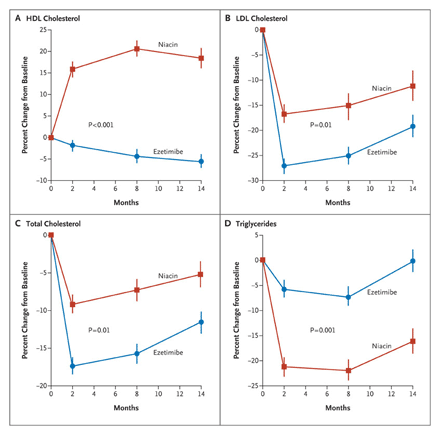In a new article the risks of non-cardiac surgery from within 6 weeks up to a year after placement of a coronary artery stent are discussed. The authors conclude that other surgery can be quite dangerous, presumably because medications, needed to keep the stent open, have to be stopped to avoid the risk of bleeding during the procedure. It has …
Antiplatelet Drugs, Prevention and Treatment of Arterial Thrombosis
Current guidelines support dual antiplatelet therapy with aspirin and clopidogrel (Plavix) in a number of clinical scenarios: ST-segment-elevation myocardial infarction (SEMI), Non-ST-elevation MI, Percutaneous Coronary Intervention. The guidelines are based on strong evidence from several large randomized clinical trials over the last 10 years. Dual antiplatelet therapy is recommended after ST-elevation MI or non-ST-elevation acute coronary syndromes, with aspirin indefinitely …
Copy of a letter to the Editor, Wall Street Journal
In regards to your February 11, 2010 article in The Wall Street Journal “A Simple Health-Care Fix Fizzles Out” by Keith Winstein, I would like to add a few comments and perhaps an explanation why, in my opinion, studies such as the COURAGE trial have had little or no effect on the way Coronary Artery Disease (CAD) is treated: COURAGE …
Elective Cardiac Catherization
…slightly more than one third of patients without known disease who underwent elective cardiac catheterization had obstructive coronary artery disease… Low Diagnostic Yield of Elective Coronary Angiography In an article, published in the NEJM in 2010, the authors analyzed data from a national registry on cardiac catheterization, reporting only 38% of elective, diagnostic coronary angiograms showed obstructive lesions, and 39% …
Percutaneous Coronary Intervention (PCI) – Risks & Benefits
A 58-year-old man has chest pain at 9:30 a.m.; 3 hours later, he calls for an ambulance. Paramedics arrive, provide standard treatment, and transport him to the nearest emergency department. On his arrival at a small hospital at 1 p.m., the findings are diagnostic of a myocardial infarction with ST-segment elevation. The emergency department physician recommends immediate transfer to a …
Comments on the niacin ezitimibe study
On Nov. 15 a study compared adjunct therapy (niacin vs. ezitimibe) for patients with known coronary artery disease (CAD) and hypercholesterolemia. The results indicated that patients would be better of with niacin (results published elsewhere on this website). The NYTimes commented on the study outcomes: Study Raises Questions About Cholesterol Drug’s Benefit on November 15, 2009: “For patients taking a …



